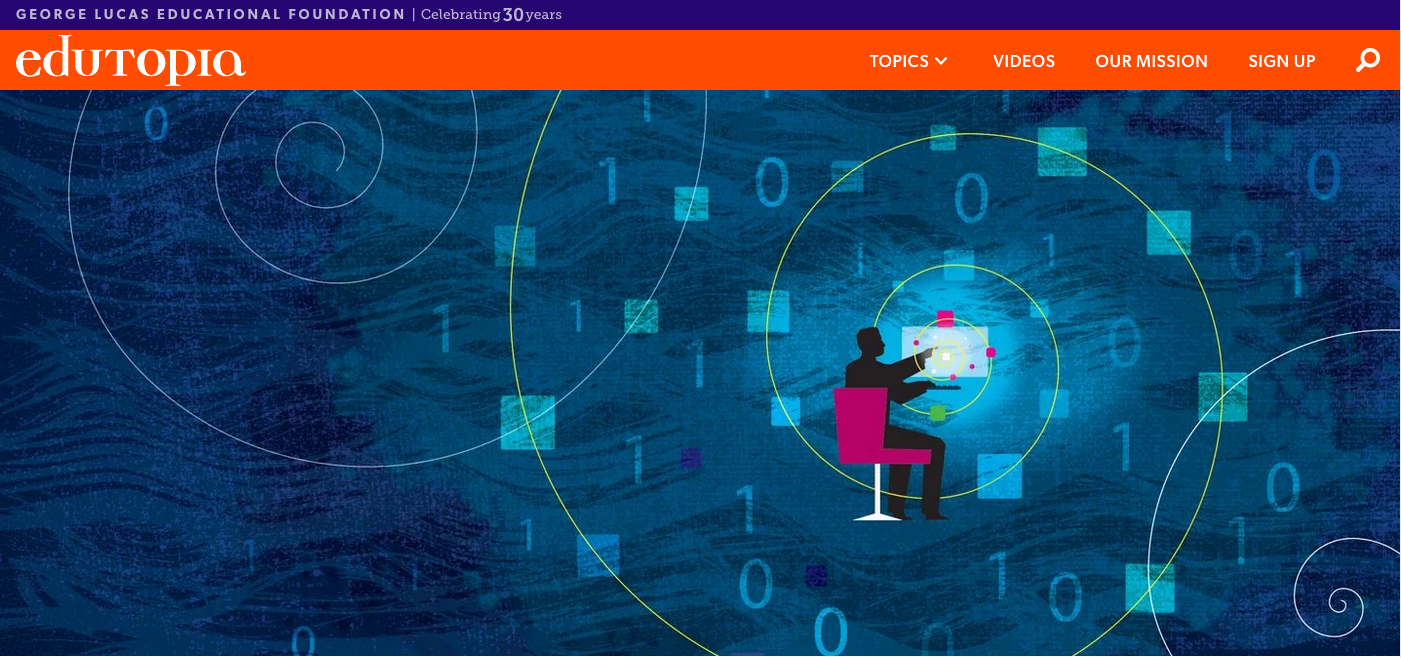
Edutopia’s review of top 10 education studies in 2020 covers topics from virtual learning and racial bias in grading to impact of air pollution
by Pisana Ferrari – cApStAn Ambassador to the Global Village
“Edutopia Online” is produced by the George Lucas Education Foundation (GLEF), a nonprofit organization that documents and disseminates stories about best practices in K-12 public education. Edutopia has reviewed hundreds of educational studies carried out in 2020 and singled out 10 to be the most significant. Many of these relate to how teachers had to transform their classrooms into virtual or hybrid ones during the pandemic, and the insights collected by researchers about what works and what doesn’t in online learning environments. A comprehensive review of the literature on this issue was carried out, for example, by a team at Georgia State University, USA. While evidence in the field is “sparse” and “inconsistent,” their report noted that logistical issues like accessing materials—and not content-specific problems like failures of comprehension—were often among the most significant obstacles to online learning. Because the tools are new to everyone, regular feedback on topics like accessibility and ease of use is crucial. The report also recommends that remote teachers use a single, dedicated hub for important documents like assignments; simplify communications and reminders by using one channel like email or text; and reduce visual clutter like hard-to-read fonts and unnecessary decorations throughout their virtual spaces.
Other topics covered by Edutopia’s review include how “acting out” vocabulary words in learning languages can help to memorize them (it nearly doubles their ability to remember the words months later); the importance of handwriting for the stimulation of the brain (handwriting/drawing produce neural tracings indicative of deeper learning with respect to typing), and why learning to code resembles learning a language more than learning math (which upends the conventional wisdom about what makes a good programmer). The issue of racial bias in grading was addressed in a study which made the case for setting very clear standards: if grading criteria are vague, the researchers say, implicit stereotypes can insidiously “fill in the blanks”. Another study questioned the value of ACT test scores in predicting how successful students would be in college. Edutopia’s review includes a study by Annenberg Brown University which links air pollution, absences from school, and achievement: the researchers reported a drop in pediatric emergency room visits and fewer absences in schools after the closure of several coal-fired power plants in Chicago. This reminds us, Edutopia says, that questions of educational equity do not begin and end at the schoolhouse door.
Sources
“The 10 Most Significant Education Studies of 2020”, Youki Terada, Stephen Merrill, Edutopia, December 4, 2020
Photo credit: Edutopia website